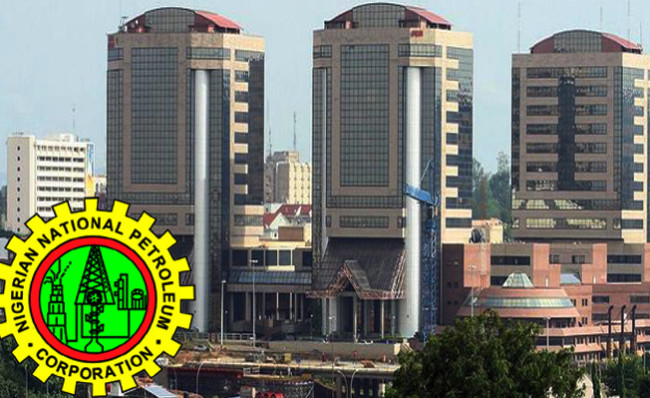NNPC’s staff cost takes lion’s share of $33.8 bn 2016 revenue: report

The Nigerian National Petroleum Corporation (NNPC) overhead costs took the lion share of $33.8billion it generated in 2016, latest findings from BudgIT, a data and technology civic group has revealed.
Further findings of the review of the corporation’s 2016 financial/operations report by BudgIT, said NNPC’s operational expenses between 2015 and 2016 consistently outstripped its revenue earnings.
Although the review showed the NNPC realised $33.82 billion (about ₦10.3 trillion at ₦305.12 average exchange rate to the dollar), it recorded a loss of about ₦197.49 billion during the year, with the only profit of ₦274 million in May, while an unreconciled figure of $534.95 million was equally reported.
Oil exports dropped from an average of 780.69 million barrels in December 2015 to only 669.59 million barrels during the year.
The country’s revenue earnings have continued to be impacted negatively in the wake of a drastic drop in global crude oil prices in the last five years.
From an average of about $147 a barrel in 2012 to about $52.35 in 2015, crude oil prices dropped further to about $43.55 in 2016. Last Thursday, the Organisation of Petroleum Exporting Countries, OPEC basket price of 12 crudes stood at about $42.58.
The declining global oil prices have resulted in Nigeria’s multinational oil companies carrying out drastic adjustments in their operations.
While some have scaled down significantly on the level of their ongoing operations, others have deferring or even cancelled their fresh plans on investment progranmes.
But, BudgIT noted in its review that despite declining revenue earnings from oil exports, NNPC was yet to adjust its costs profile to reflect the prevailing industry reality.
The bulk of the costs, the group noted, came from recurrent overheads accumulated by its corporate headquarters, which has yet to downsize its bloated workforce in line with the current slump in global oil market.
The corporate headquarters is one of the arms of the national oil company rated “very poor” among the nine the report said constituted NNPC’s unprofitable centres since 2015.
Although the four refineries in Port Harcourt, Warri and Kaduna were also identified among the costs guzzling arms contributing to NNPC’s high operational costs, the report revealed a plan by government to prioritise their repairs, latest by 2019.
NNPC’s resolve to fix the ailing refineries, the report noted, is to forestall the looming danger of a possible monopoly in petroleum products supply in the country against the scheduled coming on stream of the Dangote refinery in 2018.
At the moment, the NNPC says it handles more than 90 per cent of the over 35 million of petroleum products consumed daily in the country.
The report also noted that contrary to earlier indication that it had stopped allocation of crude oil for offshore processing agreements, replacing it with Direct-Sale Direct-Purchase, DSDP, 95,000 barrels of crude oil are still being allocated for product swaps every month.
Again, despite last December 2016 agreement by the government to exit the joint venture cash call arrangement with the multinational oil companies, the report said the NNPC has continued to withhold monthly remittances to the Federation Account for that purpose.
“The NNPC failed to remit its monthly FAAC (Federation Accounts Allocation Committee) dollar payments as required,” the report said. “This was done only thrice in 2016.”
BudgeIT said NNPC officials had explained that the inconsistency in payments into the FAAC account was because the corporation had to settle its JV Cash Call obligations first before remitting the balance to the FAAC.
“The JV Cash Call obligations will be difficult to unwind (possibly taking up to three years) before Nigeria can fully transit to the IJVs (International Joint Venture) structure. With the implementation of the PIGB (Petroleum Industry Governance Bill), the process may however be accelerated,” the group said.









0 Comments